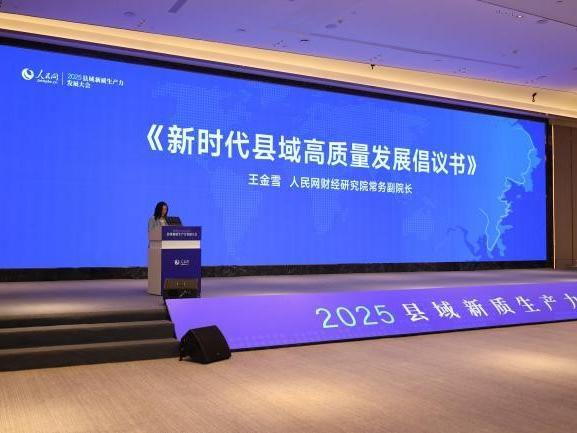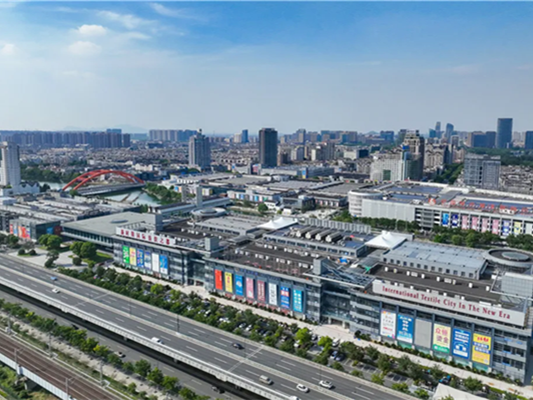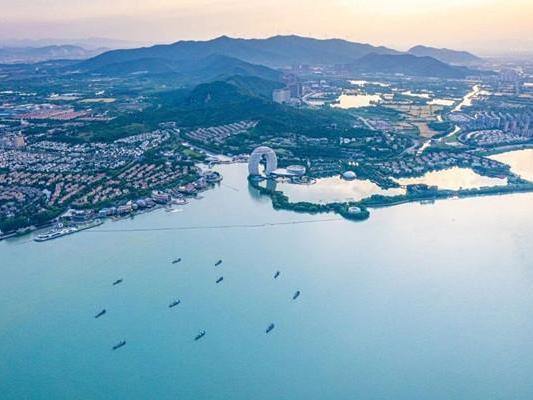Supposing the famous ancient Greek tragedy Oedipus Tyrannus is performed in the form of traditional Chinese Yue Opera, what would the audience say? This seemingly unattainable goal is what the Chinese artists are trying to achieve now.
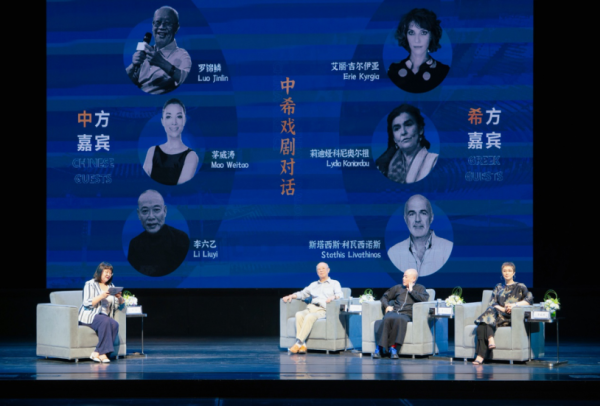
China Greece Theater Dialogue
On September 30, the event "To Share and Inspire - China Greece Theater Dialogue" of the 2021 China Greece Year of Culture and Tourism was unveiled at Butterfly Theater of Hangzhou, Zhejiang, where artists from China and Greece communicated with each other via video. The organizer also prepared an innovative eponymous Yue Opera work adapted from the ancient Greek tragedy "Oedipus Tyrannus" (excerpt). In order to show respect to the ancient civilization of the two countries, the excerpt from the Yue Opera version of "Oedipus Tyrannus" is not only performed in theaters but also filmed at the Archaeological Ruins of Liangzhu City, which is a world cultural heritage site.
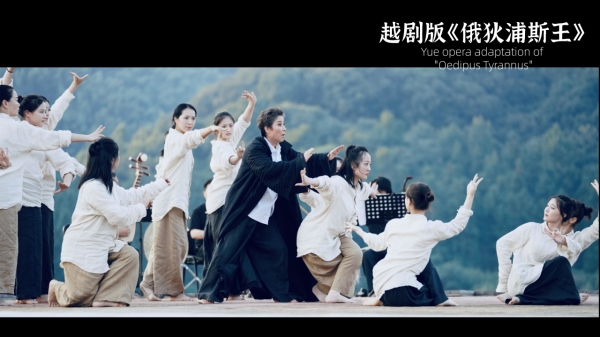
The Yue Opera version of “Oedipus Tyrannus”
Based on ancient Greek mythology, “Oedipus Tyrannus” is a play written by Sophocles. The story of the king Oedipus is also well-known to Chinese people. Yue Opera is one of the most representative traditional dramas in China. Yue Opera was born in Zhejiang Province over 100 years ago and is often played by female actors. In this case, Ms. Mao Weitao, a well-known Yue Opera performing artist, plays the role of Oedipus Tyrannus. Such a pioneering try not only echoes the blending of civilizations along the Silk Road but also serves as a reflection of the cultural exchanges between China and Greece in recent years.
The great ancient civilizations are all alike, know and friendly to each other. This event aims to offer Chinese and Greek theater experts a stage to exchange ideas from various aspects on how to learn from each other through the "lens" of "theater".
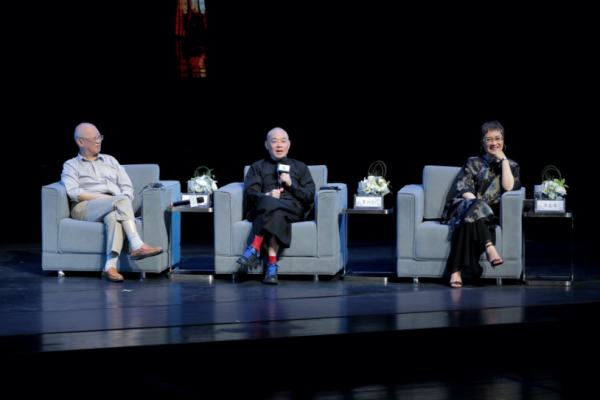
From left to right: Luo Jinlin, Li Liuyi, Mao Weitao
Mr. Luo Jinlin, who attended this dialogue as a guest, is the son of Mr. Luo Niansheng, a world-renowned Chinese scholar of Greek culture. Mr. Luo Jinlin has transposed many ancient Greek tragedies into traditional Chinese operas, which have been performed in numerous countries. In this dialogue, Mr. Luo Jinlin shared his feelings and experience of learning from what President Xi Jinping mentioned in the signed article he published during his visit to Greece in 2019 — "Let Wisdom of Ancient Civilizations Shine Through the Future". After that, Mr. Luo also talked about the fusion of Eastern and Western drama. Ms. Lydia Koniordou shared her experience of teaching at Shanghai Theatre Academy, aiming to explore the similarities and differences in theater performance and education between Greece and China. Mr. Stathis Livathinos, who was invited to direct the ancient Greek tragedy Agamemnon for the National Theatre of China, shared his creative experience in cross-cultural and cross-context drama practice. Ms. Mao Weitao exchanged ideas on "cross-gender acting", highlighting the similarity, linkage, and affinity between the ancient theater arts of China and Greece. Mr. Li Liuyi also explained the theme of "returning to the classical civilization" at the event.
The event is a cultural exchange project implemented within the framework of the 2021 China Greece Year of Culture and Tourism, supported by the Ministry of Culture and Tourism of the People's Republic of China, jointly hosted by the Information Office of the People's Government of Zhejiang Province, Zhejiang Provincial Department of Culture and Tourism, the National Theatre of Greece and the Embassy of the People's Republic of China in Greece, and co-organized by Baiyue Cultural Creativity Co., Ltd. and Zhejiang Vocational Academy of Art.
(Author: Xuan Zexing)
